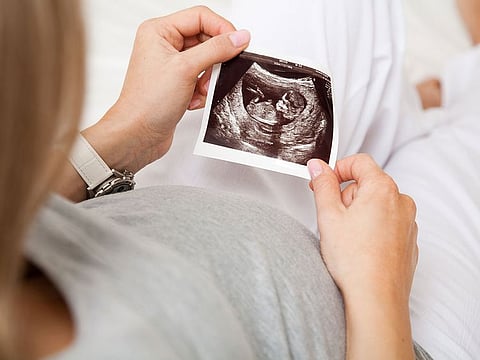Did you know your make-up could be risking your pregnancy?
This is how you can protect your baby in the womb…

Also In This Package
A new study, presented by scientists last week, found that the placenta can absorb even very large plastic particles, which may negatively impact foetal health.
The study, conducted at Utrecht University and presented at the Plastic Health Summit in Amsterdam, found that up to 10 micrometre polystyrene particles can be absorbed by the placenta. And these plastic particles can become a vector for other chemicals they encounter in the environment.
Lead researcher Hanna Dusza told Gulf News in an interview that more research is urgently required to establish the extent to which micro plastics in the foetal environment can affect health.
She explained that micro plastics are thought to be chemically similar to air pollutants, which studies show are associated with pregnancy complications such as pre-term birth and pre-eclampsia.
Harsh effect
Professor Patricia Hunt said at the Plastic Health Summit in Amsterdam on October 21 that, “the placenta is a lifeline for the developing baby, regulating the exchange of nutrients, gases and waste products between the mother and the foetus. The placenta is also an important endocrine organ, producing hormones crucial for the maintenance of pregnancy.
“Ultrafine particles in air pollution can reach the placenta, increasing the risk of pregnancy complications such as pre- eclampsia, pre-term birth or low birth weight. Recent studies have shown that micro plastics are also detected in the placenta, though their effects are unclear. Our research shows that plastic particles of different sizes are efficiently taken up by placenta cells, where they may exert subtle effects on endocrine function.”
She added: “Chemicals used in plastics not only have the potential to harm our fertility, but also to affect future generations.”
Phthalates cause long-term damage, growth restriction, motor skills problems and language problems.

Dr Varsha Singhal, Specialist obstetrics and Gynaecologist with Prime Hospital, says while most pregnant women know to avoid smoking, alcohol, food like sushi and soft cheese during pregnancy, they may not be aware of the effect the packaging of the healthy food they are eating may be doing to their unborn child. Data by international research firm Our World in Data states that we produce more than 380 million tonnes of plastic every year, making complete avoidance almost impossible.
Phthalates – or chemicals that are used to make plastics more durable – are harmful. “They cause long-term damage, growth restriction, motor skills problems and language problems,” she says, underlining the seriousness of the new findings.
Did you know?
Your favourite skincare products may be hurting your child. Microplastics are found in a number of cosmetic products such as eyeliners, mascara, eye shadows, eyebrow pencils, lipsticks, face powders and foundations, as well as skin care products. Once you get these particles in your system, they may go through the placenta and get to the baby.
Dr Singhal says while it is impossible to avoid phthalates completely, the exposure can be decreased by:
Do you have a topic you'd like us to cover? Write to us at parenting@gulfnews.com









